Mutual Aid Disaster Relief Resource List Masterpost
Mutual Aid Disaster Relief resource list masterpost
So I just found https://mutualaiddisasterrelief.org/resources/ And it is AMAZING.
I could share it as a link but many of you won’t click it and realize the abundance of things behind it that might be relevant to you right now. So Instead I’m gonna copy-paste the lot so you can all share in its glory. No part of this list was my work, I take no credit, I’m just the copy-paster.
The hotlines and specific services are US centric. If people wanna add less US-centric sources, please do.
Disaster Response
A Window Propped Open A Window Propped Open Issue 2: Lessons Learned Organizing After Hurricane Harvey A Love Letter to the Future Mutual Fire Brigade Basic Rescue Skills Trauma and Therapeutic Art: Information for Children, Families and Volunteers Transition is Inevitable; Justice is Not: A Critical Framework for Just Recovery Staying Above Water: Global Migration in the Face of the Climate Crisis Mutual Aid Disaster Relief: Navigating Trauma Citizen’s Guide for Readiness for Climate Extremes in the Desert Southwest Inhabit: Instructions for Autonomy Solidarity for Survival: A Graphic Illustration The Resilience We Want – A Guide to Making Your Community Space into a Hub for Resilience and Mutual Aid When We Got Handed Gatorade We Danced in the Street: A Survivor’s Survival Guide Prisoners in Disaster: The Legacy of Abuse, Exploitation and Endangerment of Prisoners in Disaster A People’s Framework for Disaster Response: Rewriting the Rules of Recovery after Climate Disasters
Disaster Disability Hotline
The Partnership For Inclusive Disaster Strategy’s Disaster Disability Hotline provides information, referrals, guidance, technical assistance and resources to people with disabilities, their families, allies, organizations assisting disaster impacted individuals with disabilities and others seeking assistance with immediate and urgent disaster-related needs.
The Disaster Hotline is always available for intake calls, 24 hours a day, 7 days a week, 365 days a year at (800) 626-4959 and info@disasterstrategies.org. They will have their knowledgeable team respond to your call as soon as possible, often immediately, and intend to respond to all callers within 24 hours.
Safety and DIY Cleanup
Repairing Your Flooded Home EPA Flood Cleanup Booklet DIY Field Guide For Clean-up Of Flooded Homes Safety Notice For Unskilled Or Nontrade Volunteers House Gutting Manual Muckout Safety Guidelines Toxic Chemicals and Staying Safe Mold Cleaning and Prevention Mold Cleaning and Prevention (Spanish) Black Mold Flyer
Wellness/Community Care
An Activists Guide to Basic First Aid Peer Counseling and Active Listening Alternatives to EMS Home Remedies for Common Maladies Traveling Companions Information on Heat and Related Illnesses Hypothermia Responding to Critical Incident Stress Class Struggle and Mental Health Zine Madness and Oppression Guide A Call for Prefigurative Mental Health Support and Communal Care for Radical Orgs
Emergency Prescription Assistance Program
The Emergency Prescription Assistance Program, or EPAP, was created to help people in a disaster who don’t have health insurance so they have access to: prescription medicine, medical equipment, medical supplies, and vaccinations. Hotline: 1-855-793-7470.
Trauma and Burnout
Mutual Aid Disaster Relief: Navigating Trauma Trauma_Overview Preventing Burnout Understanding and Coping with Traumatic Stress Understanding and Addressing Vicarious Trauma Grounding and Centering for Activists Rising Up Without Burning Out Sustainable Activism and Avoiding Burnout Psychological First Aid Activist Trauma and Recovery Trauma and Therapeutic Art: Information for Children, Families and Volunteers Community Trauma Toolkit Coping With_Climate_Change_Distress
Disaster Distress Helpline
The Disaster Distress Helpline, 1-800-985-5990, is a 24/7, 365-day-a–year, national hotline dedicated to providing immediate crisis counseling for people who are experiencing emotional distress related to any natural or human-caused disaster. This toll-free, multilingual, and confidential crisis support service is available to all residents in the United States and its territories. Stress, anxiety, and other depression-like symptoms are common reactions after a disaster.
Call 1-800-985-5990 or text TalkWithUs to 66746 to connect with a trained crisis counselor.
Legal/Security
Security Culture – A Handbook For Activists Ruckus Security Culture For Activists Know Your Rights: Immigration and Disaster Relief Council on American Islamic Relations Know Your Rights Guide National Lawyers Guild Know Your Rights Guide Why Misogynists Make Great Informants
Disaster Legal Hotlines
Legal Aid of North Carolina: 1 866 219 5262 Florida Legal Services’ Disaster Recovery: 888 780 0443 State Bar of Texas Disaster Hotline: 800 504 7030 California Disaster Legal Services For More Legal Aid Disaster Hotlines go to: American Bar Association
Anti Oppression
Accomplices Not Allies Why Misogynists Make Great Informants Who Is Oakland: Anti Oppression Activism, The Politics of Safety, and State Co-optation Anti-Oppression Reader With Allies Like These Challenging Capitalism And Patriarchy Confronting Classism Contextualizing Katrina and Confronting Racism Guidelines For Being A Strong White Ally Overcoming Discrimination Patterns of Patriarchy Commonly Observed within Social Justice Movements Readings on Racism and Resistance for Solidarity Activists Ten Things To Remember – AntiRacist Strategies For White Student Radicals The Revolution Starts At Home – Confronting Partner Abuse In Radical Communities Towards A Perspective On Unlearning Racism
Kitchen and Food Handling
Food Safety First Manual
Popular Education and Direct Action
You Have Skills: Evaluating What Skills You Can Bring to Radical Organizing From Banks and Tanks to Cooperation and Caring Handbook for Nonviolent Campaigns Handbook For Direct Action Affinity Groups Affinity Groups 2 On Strategic Nonviolent Conflict Participating In Direct Actions -A Guide For Transgender People Planning An Action Rising Tide Climate Change Popular Education Ruckus Action Planning Manual Ruckus Action Strategy Guide Ruckus Scouting Manual For Activists Social Change Vision Questions Core Curriculum – A Guide To Effective Nonviolent Struggle What Do We Mean by Mutual Aid? Metodo de Trabajo y Organizacion Popular Manual de Planificación Para Organizaciones Sociales
Water, Sanitation and Hygiene
No More Deaths – Compost Toilet User Guide Sanitizing Water (Spanish) – Saneamiento del agua (español)
Also for even more resources, check out this Mutual Aid Toolbox from Big Door Brigade and these How To guides from Shareable.
More Posts from Solarpiracy and Others
So in What Matters in Jane Austen, the author points out that Lizzie and Jane are constantly going off to have their own side conversations and gossip with each other, moreso than any other set of characters in Austen, and now I’ve decided a necessary feature of any modern au is Lizzie just CONSTANTLY texting Jane. Like the second any conversation ends she’s texting Jane about it. If she’s feeling particularly mean she’ll just text Jane while you’re still talking.
It’s hopeful. Solarpunk doesn’t require an apocalypse. It’s a world in which humans haven’t destroyed ourselves and our environment, where we’ve pulled back just in time to stop the slow destruction of our planet. We’ve learned to use science wisely, for the betterment of ourselves and our…
Activism is not cold-calling.
Activism is not cold-calling, and this is critically important to understand.
I'm seeing a lot of posts on here about 'building bridges' and 'finding community,' and then (extremely valid) response posts saying "BUT HOW??" And I'm going to explain something that can be very counter-intuitive: there is strategy involved in community.
As a longtime volunteer labour organizer, I’ve taken and taught many trainings on the strategy of talking. Something that surprises a lot of people is the very first thing you do in a union campaign. You sit down with your organizing committee, take out pen and paper, and literally map it out. You draw a physical map of the workplace: where are the entrances, exits, break rooms, supervisor offices. Essentially, ‘where is it safe to have a union conversation.’ Then you draw another physical chart of your coworkers. You sort out who is union-friendly, openly hostile to unions, or somewhere in the middle, and then you plan out very deliberately and carefully who talks to whom and in what order.
Consider: If Vocally Leftist Jane walks up to Conservative David and says "hey what do you think about unions," David is going to shut down immediately. He's not inclined to listen to Jane. But if Jane talks to Moderate Jason and brings him into the fold, then Jason is a far more effective strategic choice to talk to David, and David may actually hear him out without an instant reaction.
IMPORTANT CAVEAT: If Conservative David turns out to be Alt-Right David, and could be dangerous to follow organizers, we write him off. We are not trying to reach Alt-Right David. We are trying to reach Conservative David, who may actually be persuaded to find solidarity with other employees as fellow workers. Jason is a safe scout to find out which one he is. It does no one any good if Leftist Jane (or even Moderate Jane who is a visible minority) talks to Alt-Right David and puts herself on his radar. Not only has she done nothing to convince Alt-Right David to join a union - she's probably actively turned him against the idea - but now she's also in danger and the entire campaign is at risk. NOBODY WANTS THIS. Jane was NOT a hero for doing this. The organizing committee was foolish and enacted a terrible strategy to everyone's detriment.
Where you can make a difference is with people who will listen to you. You having a conversation with your well-meaning but clueless Centrist Democrat Auntie, and maybe gently helping her understand some things the media has been glossing over, is way more strategically useful than you marching up to MAGA Neighbour You've Met Once and trying to "build community" or "understand" them. They don't care. They're impervious, dangerous, and cruel. But maybe your beloved auntie will think about what you said, and then talk to her friend Anna who IDs as "fiscally conservative" but didn't vote because she can't bring herself to get on board with Trump. Then perhaps Anna talks to her brother Nic who has MAGA leanings but isn't all the way there yet. Proto-MAGA Nic would not have listened to you, nor would he have listened to Centrist Democrat Auntie, but he might absorb some of what his sister is saying.
This is not a cop-out or an echo chamber. This is you spending your time and energy strategically and safely. You are not a useful activist to anyone if you’re dead. Anyone who is telling you to hurl yourself directly at MAGA assholes like cannon fodder has no understanding of the strategy behind community building, and you should feel comfortable writing them off.
Last point: If you are tired, emotionally devastated, and/or in danger: take a break. This post is for people who would feel better jumping into action, not for people who are too overwhelmed to even think about it right now. You are worth so much even if you’re not actively Doing Activism, and your rest is worth more than “a break period so you can recharge and Do More Activism.” We all deserve the individual dignity of being worthy of comfort, rest & safety just on the basis of being human, outside of whatever we're doing for others' benefit. To deny ourselves that dignity is to devalue ourselves, and that’s the absolute last thing any of us should be doing right now.
How to build a garden with no money
It's a relatively modern problem, where you, a scrappy solarpunk with no money, want to begin a vegetable garden. The ground you have to work with is either dead as hell or flat out toxic or has no dirt at all. You want to build a raised bed but you have no money and the kits are expensive. There's a lot of ways to go about this, here's what I did: I built a wicker basket.
Step one: assemble your branches.

You want whippy ones at least 4' long, no thicker than two fingers, no thinner than a chopstick. Longer and bendier is better, but also get a bunch of thick stiff ones. I got mine from the Greenway near my lil condo, and from my neighbor's yards.
Protips: Wear gloves, because thorns. Carry clippers discretely, because people get nervous when they see sharp shiny things in your pocket. The branches in the above pic are one load of three, because that's how much I could carry.
Step two: hammer your stakes
(no pic for this part, sorry)
Take the thickest and straightest of your branches, and cut a length you want to be the height of your box plus a couple inches extra. Hammer them into the ground every 18" or so, and at each corner. Every side of your box must have at least three stakes.
Protip: if the ground is really hard, drive a hole ahead of the stick by hammering in a screwdriver.
Step three: get weaving

First weave your biggest branches in and out between the stakes. You can remove any leaves for free compost at this point.
Protip: this is the hardest part, so don't get discouraged! Here is also where you will find out of the stakes are thick enough or hammered in deep enough. Try not to cry if they fall over. Or break.
Step four: keep weaving

Now you put in the smaller branches. I found that long vine types like ivy and wild rose can be woven in more than one direction, so if you need to fill in some gaps you can get creative.
Protip: tamp down the walls you've made every so often do they stay nice and dense. They need to be closely woven enough to hold dirt later.
Step five: smaller, different weaving

By now you have gotten down to the sticks that aren't quite long enough to go between the stakes. Make them into smaller stakes, ones that don't go into the ground but nonetheless weave vertically through your box walls. Hey, it's starting to look more like a box!
Protip: break off the ends of the stakes and your new vertical weave so they don't have out too much, and WEAR YOUR GLOVES, don't be an idiot like me and think you're safe because you don't have thorns to deal with.
Step six: fill it with dirt.

If you have any budget, use it all here. Get good, organic dirt, get your compost bin empty, and be extra careful taking dirt from elsewhere if you don't know exactly what has been leaking into it.
Protip: get more dirt than you think you need. Dirt is fluffy. The second you get water on it all the air goes away and you have a three inches deep garden box. In the unlikely event that you get more dirt than you need, use it for your houseplants or porch containers.
And that's it! Plant what you like! Use the seeds you've stolen from other gardens and the insides of your daily fruit! If you've bothered your nosy neighbor and they have alerted the HOA or your landlord, take this time to brush up on your various rights. If your neighbor dislikes you because they believe you to be a witch and a lesbian and idk, a long haired hippy or some other deeply outdated derogatory term, get those middle fingers up because you are going to help the bees and they aren't.
Green can be very punk.
Do armadillos actually roll?
actually, the three-banded armadillo of south america is the only armadillo that actually rolls when in distress!

the larger and more common nine-banded armadillo of central and north america actually has too many bands in its shell to form a proper sphere, so what they do instead is... perform a three-foot vertical leap to startle an attacker and run like hell once they hit the ground, trusting their armor to protect them from attacks from the rear!

and for an animal completely covered in bone armor, they can sure pull a high rate of giddyup if they have to!

nyoom

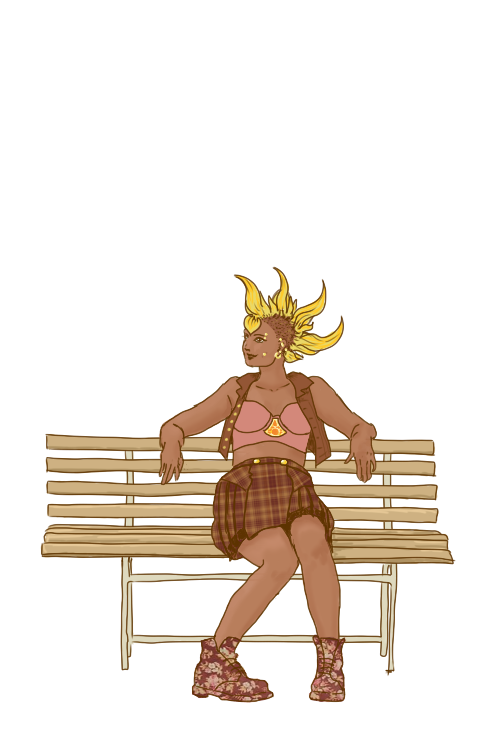
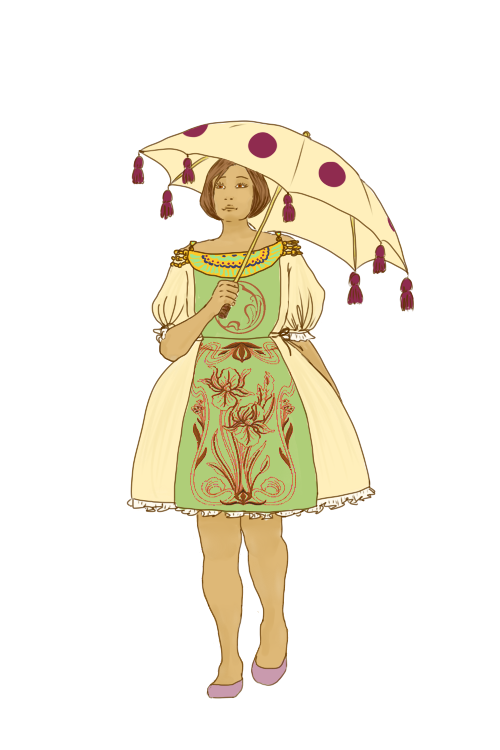

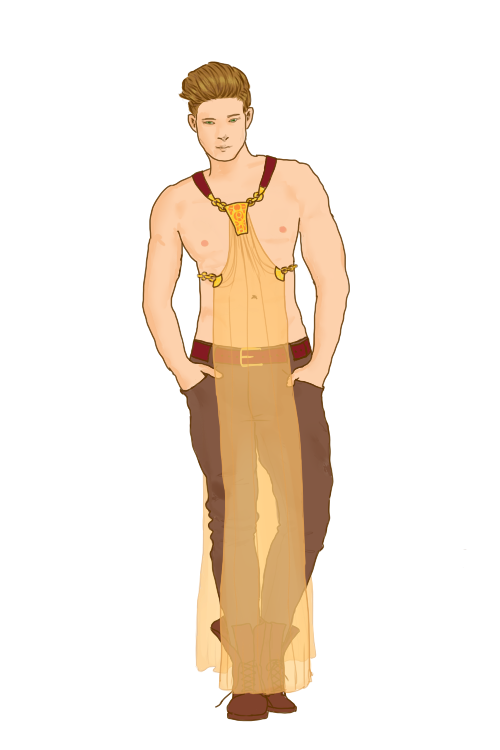
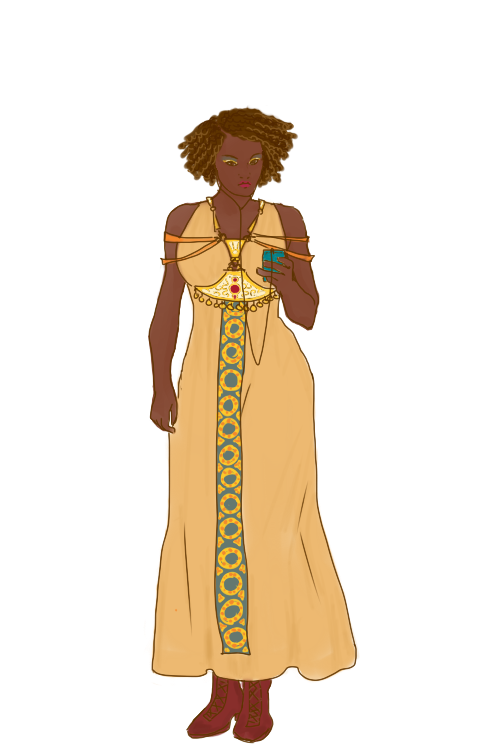


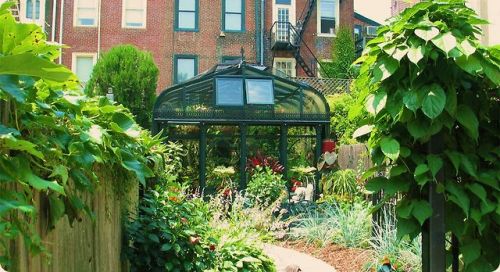
Here’s a thing I’ve had around in my head for a while!
Okay, so I’m pretty sure that by now everyone at least is aware of Steampunk, with it’s completely awesome Victorian sci-fi aesthetic. But what I want to see is Solarpunk – a plausible near-future sci-fi genre, which I like to imagine as based on updated Art Nouveau, Victorian, and Edwardian aesthetics, combined with a green and renewable energy movement to create a world in which children grow up being taught about building electronic tech as well as food gardening and other skills, and people have come back around to appreciating artisans and craftspeople, from stonemasons and smithies, to dress makers and jewelers, and everyone in between. A balance of sustainable energy-powered tech, environmental cities, and wicked cool aesthetics.
A lot of people seem to share a vision of futuristic tech and architecture that looks a lot like an ipod – smooth and geometrical and white. Which imo is a little boring and sterile, which is why I picked out an Art Nouveau aesthetic for this.
With energy costs at a low, I like to imagine people being more inclined to focus their expendable income on the arts!
Aesthetically my vision of solarpunk is very similar to steampunk, but with electronic technology, and an Art Nouveau veneer.
So here are some buzz words~
Natural colors! Art Nouveau! Handcrafted wares! Tailors and dressmakers! Streetcars! Airships! Stained glass window solar panels!!! Education in tech and food growing! Less corporate capitalism, and more small businesses! Solar rooftops and roadways! Communal greenhouses on top of apartments! Electric cars with old-fashioned looks! No-cars-allowed walkways lined with independent shops! Renewable energy-powered Art Nouveau-styled tech life!
Can you imagine how pretty it would be to have stained glass windows everywhere that are actually solar panels? The tech is already headed in that direction! Or how about wide-brim hats, or parasols that are topped with discreet solar panel tech incorporated into the design, with ports you can stick your phone charger in to?
(((Character art by me; click the cityscape pieces to see artist names)))
The war on drugs main consequence was to incarcerate huge numbers of people. There are 2,400,000 people in jail in the U.S. There are 7 times as many people in jail now as in the early seventies. About 1 in every 100 American adults is in jail. About half are there for drug offenses, many just possession.
It’s wild.
We tried prohibition with alcohol. It led to gang violence, people drinking poorly distilled liquor with methanol and getting sick or going blind, and so on. We tried it for ten years and were like, “Hey, maybe this just doesn’t fucking work at all.” And then we tried it with drugs.
Opium (not opiates, mind, but opium specifically) is the only drug whose usage decreased after prohibition, likely because other opiates including morphine and heroin were available. Everything else, usage has increased, and though most have peaked, none are close to their pre-prohibition usage status.
Prohibition has not made us safer and will not make us safer. Ascribing a level of rebelliousness to drugs, teaching kids lies about drugs that make them likely to doubt our word on all drugs rather than teaching them the actual potential harms and being honest, jailing people for ingesting substances on their own terms without harming anyone else (and again, if they do harm anyone else, they should be arrested for that, of course), not regulating the content of the drugs people buy and consume, pressuring people to hide their habits rather than seek help, forcing them into a position of isolation that progresses rather than impedes addiction, creating financial incentive for gangs to sell drugs and war over selling territory–none of these are things that benefit us. Responsibility for casual users and rehabilitation for problem users, honesty about all substances, proper education, healthy discussions, these are things that will make a difference.
Comrade I picked a bad time to get radicalized when it comes to safe organization. I’ve already linked up with my local DSA chapter but there’s really not much I can do except for attend zoom meetings and kind of just sit around with my dick in my hand. Besides sending money and going to more outdoor protests, do you have any suggestions on what to do about direct action while a meet up with my local groups is pretty much impossible?
First of all, welcome to the insurrection, friend! We’re glad to have you on!
I don’t think you’re alone in this boat. Material conditions are such that lots of people are getting radicalized-- they’re being evicted, they’re fleeing climate apocalypse, they’re seeing their loved ones die from cops and coronavirus and they’re helpless to stop it. They’re getting deported and fired and laid off and atomized and can’t even afford to subscribe to shitty streaming services as a palliative force.
Your first instinct-- to find others-- is fundamentally correct. We can only effect real meaningful change in large numbers. We don’t have the cash, but we have the people and we got the guillotine.
Do you have a job? Do you have a union? If the answers are yes and no, respectively, now is the time when you can organize more easily with your co-workers outside the control of your boss. Test the waters in friendly conversation with people you can trust not to snitch, and consider organizing your workplace. The IWW has a very useful guide on how to do so.
Do you rent? Consider forming a tenants’ union. Organizing one of these is less dangerous than organizing your workplace, as you don’t report to your landlord regularly. If your landlord tries to kick one of you out, all of you can strike.
Many mutual aid efforts are still ongoing in the face of lockdown. Now more than ever, we need to care for each other. Food Not Bombs probably has a chapter near you, and the ones around where I’ve lived continue to operate (albeit with precautions like gloves). Join one of those efforts. I’d focus on housing and food-related mutual aid.
Finally, use this time to learn a useful revolutionary skill. You can grow a tiny garden even if you’re in an apartment, you can learn to brew cider, mead, beer, and wine. You can learn to sew and mend, build structures, forage, survive in the woods, read revolutionary lit, and shoot with/care for a gun. Get comfortable carrying heavy things on your back, and expand your cardio abilities (lots and lots of running). Not everyone can run, of course, but do whatever you can to make it easier to escape or throw a punch (when we get back into contact with each other, take up a self-defense art). Once you know the basics, teach them to someone else.
If anybody else has ideas, please put them here!
And again, welcome, comrade, and good luck.





The #1400challenge - How to turn stimulus checks into collective power | Inhabit
The last year has demonstrated just how razor thin our margin of survival is—from the brutality of the police to the viciousness of the virus, from the absurd ups-and-downs of the economy to the glaring incompetence of the government.
Now that they’ve been forced to send some cash our way, we’d like to propose a little something they maybe didn’t expect. The idea is simple: what if we took our stimulus checks and put them towards collective use?
In recent weeks Inhabit has been collaborating with groups around the country to put together a series of kits called the #1400challenge. The result is a handful of introductory guides for a variety of collective projects—from soundsystems and meshnets to pop-up dwellings and community gyms.
Each project is based on a proven and replicable idea, a working model that has already seen action in the streets and in neighborhoods. And each could be a jumping off point for new designs, new skillsets, new encounters, and newly expanded frontlines in the battle for the future.
No doubt many of us will have to spend our checks on necessities like groceries, rent, medical bills—all the bullshit it takes to stay alive in this bullshit world. But for those who can, and especially for those who want to pool resources, the opportunity is clear: invest in collective infrastructure that increases our shared capabilities, that augments our ability to live and to fight.
Here’s our wager. We have to translate isolated, temporary solutions to individual problems into the material and ethical basis for building collective power. We need autonomous solutions that scale at the level of neighborhoods, cities, and regions. Our power together unlocks more potential than we have alone.
It’ll take more than a stuck container ship to break the hold of the economy over our lives. Design and build new ways of living together, that lessen our dependence on their system at the same time that we cultivate trust in one another. Leverage all the means at our disposal—including their cold hard cash—to bring out the beauty, dignity, and creativity of our shared existence.
Read more…
If you want even more ideas, check out my #practical tag
-
 stacked4feethighand6feetwide reblogged this · 1 month ago
stacked4feethighand6feetwide reblogged this · 1 month ago -
 kitelined reblogged this · 1 month ago
kitelined reblogged this · 1 month ago -
 space-kase reblogged this · 1 month ago
space-kase reblogged this · 1 month ago -
 nodesiretogrowup reblogged this · 1 month ago
nodesiretogrowup reblogged this · 1 month ago -
 skoomapipe reblogged this · 1 month ago
skoomapipe reblogged this · 1 month ago -
 skoomapipe liked this · 1 month ago
skoomapipe liked this · 1 month ago -
 whovianuncle reblogged this · 1 month ago
whovianuncle reblogged this · 1 month ago -
 orzuie reblogged this · 1 month ago
orzuie reblogged this · 1 month ago -
 tulips-and-tolstoy reblogged this · 1 month ago
tulips-and-tolstoy reblogged this · 1 month ago -
 tulips-and-tolstoy liked this · 1 month ago
tulips-and-tolstoy liked this · 1 month ago -
 bluebird-ascended reblogged this · 1 month ago
bluebird-ascended reblogged this · 1 month ago -
 bookworm-christina reblogged this · 1 month ago
bookworm-christina reblogged this · 1 month ago -
 decaysimulator reblogged this · 1 month ago
decaysimulator reblogged this · 1 month ago -
 pokemonlover2482 liked this · 1 month ago
pokemonlover2482 liked this · 1 month ago -
 roguesareth reblogged this · 1 month ago
roguesareth reblogged this · 1 month ago -
 haunted-catboy reblogged this · 1 month ago
haunted-catboy reblogged this · 1 month ago -
 haunted-catboy liked this · 1 month ago
haunted-catboy liked this · 1 month ago -
 saltpotion reblogged this · 1 month ago
saltpotion reblogged this · 1 month ago -
 lifehacksferrylikes reblogged this · 1 month ago
lifehacksferrylikes reblogged this · 1 month ago -
 gothmisspyggie reblogged this · 1 month ago
gothmisspyggie reblogged this · 1 month ago -
 makeoutmonger liked this · 1 month ago
makeoutmonger liked this · 1 month ago -
 artemisiapegs reblogged this · 1 month ago
artemisiapegs reblogged this · 1 month ago -
 kalyssto reblogged this · 1 month ago
kalyssto reblogged this · 1 month ago -
 kalyssto liked this · 1 month ago
kalyssto liked this · 1 month ago -
 hdawg1995 reblogged this · 1 month ago
hdawg1995 reblogged this · 1 month ago -
 pisshandkerchief reblogged this · 1 month ago
pisshandkerchief reblogged this · 1 month ago -
 ringwaldhaze liked this · 1 month ago
ringwaldhaze liked this · 1 month ago -
 ringwaldhaze reblogged this · 1 month ago
ringwaldhaze reblogged this · 1 month ago -
 nyan-binary-moths reblogged this · 1 month ago
nyan-binary-moths reblogged this · 1 month ago -
 nyan-binary-moths liked this · 1 month ago
nyan-binary-moths liked this · 1 month ago -
 gauzestarr reblogged this · 1 month ago
gauzestarr reblogged this · 1 month ago -
 walking-fandom liked this · 1 month ago
walking-fandom liked this · 1 month ago -
 walking-fandom reblogged this · 1 month ago
walking-fandom reblogged this · 1 month ago -
 carfuckerlynch reblogged this · 1 month ago
carfuckerlynch reblogged this · 1 month ago -
 the-dandelion-queen reblogged this · 1 month ago
the-dandelion-queen reblogged this · 1 month ago -
 the-dandelion-queen liked this · 1 month ago
the-dandelion-queen liked this · 1 month ago -
 digitaldoggirl reblogged this · 1 month ago
digitaldoggirl reblogged this · 1 month ago -
 my-little-toy-box reblogged this · 1 month ago
my-little-toy-box reblogged this · 1 month ago -
 natalieironside reblogged this · 1 month ago
natalieironside reblogged this · 1 month ago -
 suntoadcowboy liked this · 1 month ago
suntoadcowboy liked this · 1 month ago -
 mysweetsageofgrace reblogged this · 1 month ago
mysweetsageofgrace reblogged this · 1 month ago -
 mysweetsageofgrace liked this · 1 month ago
mysweetsageofgrace liked this · 1 month ago -
 stacked4feethighand6feetwide reblogged this · 2 months ago
stacked4feethighand6feetwide reblogged this · 2 months ago -
 notimetosayhellogoodbye reblogged this · 2 months ago
notimetosayhellogoodbye reblogged this · 2 months ago -
 the-geek-cornucopia liked this · 2 months ago
the-geek-cornucopia liked this · 2 months ago -
 ajrelax liked this · 2 months ago
ajrelax liked this · 2 months ago -
 faraday-caged reblogged this · 2 months ago
faraday-caged reblogged this · 2 months ago -
 faraday-caged liked this · 2 months ago
faraday-caged liked this · 2 months ago

a repository of information, tools, civil disobedience, gardening to feed your neighbors, as well as punk-aesthetics. the revolution is an unending task: joyous, broken, and sublime
211 posts